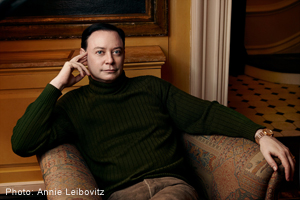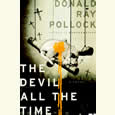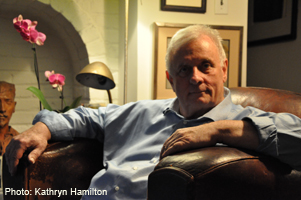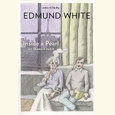The Joy of Difficult Love
For Andrew Solomon, the real goal of love is to embrace difference
In Far from the Tree: Parents, Children and the Search for Identity, National Book Award winner Andrew Solomon illuminates how “difficult love is no less a thing than easy love.” In researching the book, Solomon interviewed the parents of children who are significantly different in some way from their parents’ early expectations of the kind of people they would turn out to be. “Children like ours are not pre-ordained as a gift,” one mother explains. “They’re a gift because that’s what we have chosen.”
 The parents Solomon talked to live with the tensions between anger and acceptance, estrangement and connection, despair and joy as they face the demands of loving children who differ from them in profound ways. Chapters describing the challenging and remarkable world of children living with deafness, dwarfism, Down syndrome, autism, schizophrenia, or prodigious genius—as well as transgender children, and those conceived in rape or convicted of serious crime—are framed by chapters on Solomon’s own story. The first describes his experience as the gay son of heterosexual parents at a time when homosexuality was considered an illness. In the final chapter, he writes of embracing fatherhood with his partner and their own exceptional family.
The parents Solomon talked to live with the tensions between anger and acceptance, estrangement and connection, despair and joy as they face the demands of loving children who differ from them in profound ways. Chapters describing the challenging and remarkable world of children living with deafness, dwarfism, Down syndrome, autism, schizophrenia, or prodigious genius—as well as transgender children, and those conceived in rape or convicted of serious crime—are framed by chapters on Solomon’s own story. The first describes his experience as the gay son of heterosexual parents at a time when homosexuality was considered an illness. In the final chapter, he writes of embracing fatherhood with his partner and their own exceptional family.
Solomon describes Far from the Tree as a “manual for receptivity: a description of how to tolerate what cannot be cured, and an argument that cures are not always appropriate even when they are feasible.” He believes that all parents, children, and society as a whole can learn from the extremes to which these families have been pushed and from the resilience they have acquired. And he is careful to unravel the politics of difference, demonstrating just how cruel history has been to children who are extraordinary. “Broadcasting these parents’ learned happiness is vital to sustaining identities that are now vulnerable to eradication,” he writes. “Their stories point a way for all of us to expand our definitions of the human family.”
Far from the Tree shows that difference can unite us and struggle can offer deeper connections than conformity does. What is remarkable about this book is its ability to convey the ambivalence present in every parent-child relationship and to show how human love is able to thrive within paradoxical emotions. The parent testimonies that Solomon records show not unadulterated feeling but the hard-earned substance of a shared humanity: acceptance, forgiveness, and joy “burnished by suffering.”
Before his appearance at the Southern Festival of Books, Solomon answered questions from Chapter 16 by email:
Chapter 16: To research your book, you interviewed over 300 families whose parents and children wrestled to understand each other and love one another across differences in ability and identity. In each chapter, you look for the ways intimacy can be achieved when language, cognition, or sensory means prohibit it. Did any of these encounters cause you to shift your own understanding of intimacy between human beings?
Andrew Solomon: The change in my understanding of intimacy was vast. I had long felt that we seek out people with whom we have things in common, that our soulmates are the people with whom we share values, dreams, and proclivities. Working on this book, I came to see that the real goal of love is to transcend the things we have in common and to embrace the fact of others’ differences. We cannot achieve real intimacy until we expose people to the ways we differ from them.
Chapter 16: The ten topics you’ve chosen cover a wide set of issues around “horizontal identity,” which you define as a trait that is not passed down generationally but develops as anomalous to one’s parents and therefore must be learned from and embraced within a peer group. Which of these topics have raised the most questions and conversation since the book’s publication nearly a year ago?
 Solomon: Everyone has his own favorite among the topics. I’ve had people say, “The most important chapter is crime” or “I assume everyone just wants to talk to you about schizophrenia” or “You’re so with the zeitgeist on the transgender chapter.” I think they all have vast audiences. The gratifying thing is that everyone who has written has acknowledged pleasure in the revelation of the commonalities among the diverse conditions the book documents. The synthetic argument is the central one.
Solomon: Everyone has his own favorite among the topics. I’ve had people say, “The most important chapter is crime” or “I assume everyone just wants to talk to you about schizophrenia” or “You’re so with the zeitgeist on the transgender chapter.” I think they all have vast audiences. The gratifying thing is that everyone who has written has acknowledged pleasure in the revelation of the commonalities among the diverse conditions the book documents. The synthetic argument is the central one.
Chapter 16: The book’s website has opened a forum for others to share their stories. Do any of the contributions stand out as particularly moving or insightful?
Solomon: I don’t think it would be politic for me to choose from among the many stories, all posted with sincerity and integrity. But I will say that the repeated theme that has meant the most to me is that parents have said the book made it easier for them to love their children. And the stories posted, though they recount darkness and are particularly vivid about the difficulty of obtaining services, are almost always ultimately about love.
Chapter 16: The illness-and-identity question you raise in the book is particularly hard to answer when both medical research and developmental therapies continue to shift. As one parent of an autistic child said, “You’re hoping for change, but you’re torturing the kid.” Is there a particular case in which you found the line between acceptance and intervention to be the most jagged?
Solomon: The first question about any given intervention is whether it works; the second is what its costs are. Before determining to use an intervention, both questions must be considered. The attempts to make Kirk Andrew Murphy “masculine” seem to have been effective; he was a tough soldier. He also killed himself. The costs were too high for what was achieved. The costs of some of the fringe treatments for autism are lower, but they are ineffectual, and having your child feel that you need to “fix” him can be traumatic and cause more damage than it fixes.
Chapter 16: In your TED talk, you comment on how extraordinary children often mistake unconditional love for unconditional acceptance. How did the stories you encounter challenge your own ideas of acceptance and of how society sets conditions on those who can participate?
Solomon: I hope the encounters I had with all these remarkable families helped me to be more accepting, to move away from an idea of love as contingent on what my own children are like and toward an idea that love embraces them for whoever they are. Those encounters have without question made me a more activist campaigner for a tolerant world. If you’d asked me about inclusion and mainstreaming fifteen years ago, I’d probably have said that those programs are wonderful for people with disabilities but at the cost of slowing down the nondisabled children. Now, I hope my children will be in class with disabled children, because I think the lessons in humanity, acceptance, and openness are worth far more than any acceleration of academics that could be achieved through exclusion.
Chapter 16: In your conclusion, you write, “I am the parent I am in the wake of this book’s epic narratives of resilience.” What did you learn about the role of ambivalence in parental love from the parents like Sue Klebold who said, “I know it would have been better for the world if Dylan had never been born. But I believe it would not have been better for me”?
Solomon: I believe that parents must accomplish two objectives: to nurture and protect their children, and to push their children out into the world, granting them independence. Ambivalence can be the engine of that complicated process. We lionize the cling and stigmatize the push, but we need to have and to do both. And we need to be capable of understanding our children with all their flaws, no matter how huge those flaws are, and to love them unconditionally and always. But unconditional love should not be confused with denial about who they are or with smothering levels of attention. Unconditional love should be able to withstand insight and knowledge about our kids.
Chapter 16: The final chapter describes the unique constellation of your family: “Five parents, four kids, and three states.” What have you learned about negotiating questions of identity, difference, connection, and independence through the experience of raising a family with others?
Solomon: I’ve learned that we all have our own ways of doing things, and that there is no “right way.” There are a myriad of right ways, and we all need to appreciate that differences in parenting style matter less than the emotional content behind the parenting. And I’ve learned that children are anxiety-provoking and joy-provoking, and that the key thing is to share the joy and the tribulations, to recognize that no child has ever been loved too much (though some have certainly been indulged too much!).
Andrew Solomon will discuss Far from the Tree: Parents, Children, and the Search for Identity at the twenty-fifth annual Southern Festival of Books, held in Nashville October 11-13, 2013. All festival events are free and open to the public.





